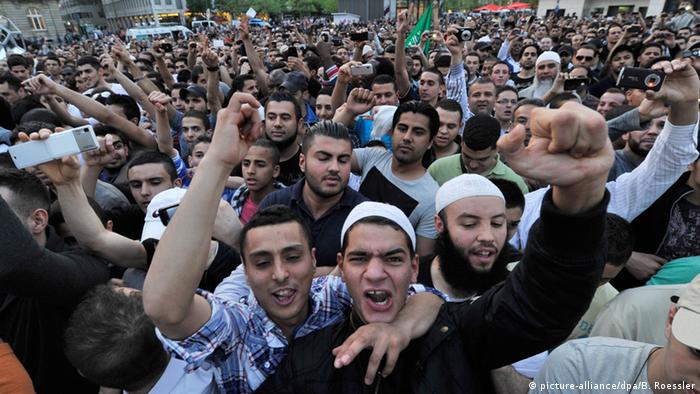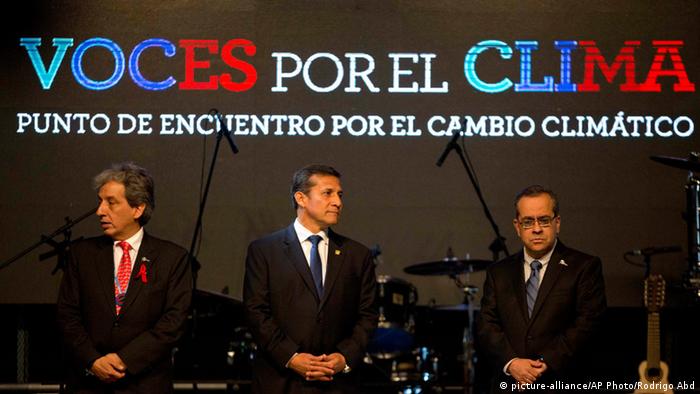Welcome
....to JusticeGhana Group

JusticeGhana is a Non-Governmental [and-not-for- profit] Organization (NGO) with a strong belief in Justice, Security and Progress....” More Details
Women In Rape
- Details
- Category: Law & Justice
- Created on Tuesday, 30 December 2014 00:00
- Hits: 4303
 Women In Rape
Women In Rape
FLASHBACK- ADVOCACY: THE DOMESTIC VIOLENCE BILL AND THE MARITAL RAPE PROVISION- DO WOMEN REALLY MEAN IT IF THEY SAY NO? (PART I- REAL RAPE)
DEDICATED TO HON HAWA YAKUBU AND NANA OYE IN SUPPORT OF THEIR MODEST STRUGGLES FOR DEFENCELESS GIRLS AND WOMEN IN OUR SOCIETIES
The news going around these days is that the Ghanaian Woman is honestly agitating for the insertion of the marital-rape provision in our Domestic Violence Bill that seeks to address all forms of aggressions or molestations in matrimonial and family homes.
It is undeniable fact that women around the world- black or white, from wealthy or poorer nations, share some basic characteristics and problems. The issue of male dominance and exploitation continue to occupy the busy minds of many feminist groups. In recent times we learnt with disgust, how a judge in Asamankese, in the West Akyem District, sentenced a 25-year-old man, to 8 years imprisonment and a fine of six million cedis for cruelly and repeatedly, raping an eight-year-old girl, whose mother was on a three days journey? With teenage pregnancy perched at an average age of 11 years and, our Eastern Region, on top of the national statistics, we had expected serious revenge to deter potential offenders but how wrong we were.
This article, therefore, assesses the Ghanaian Woman’s pleas in the context of the English Sexual Offences Act 2003, especially, on the issue of assault by penetration, sexual assault and causing a person to engage in sexual activity without consent which in respect of child victims under 13, consent or its absence is irrelevant. Because the issue under discussion consists of two words- marital and rape, the most appealing question might be, what is rape at all? Well, rape is a word still yearning for an exhaustive definition. In the United Kingdom as in the Republic of Ghana, we know it to be criminal offence that could attract serious punishment when one is found guilty. However, rape is not a favourable word in the minds of judges and jurors alike, especially, where the victim is an able adult woman.
As feminist critiques contend, the legal definition of rape has proved hugely tricky because it is based upon the construction of the act of rape from a male perspective and its failure to consider adequately female experience of acts of sexual violence. For example, in DPP v Morgan [1976] A. C. 182, Lord Fraser said at 237* that: It seems to me that.. the mens rea of rape is an intention to have intercourse with a non-consenting woman? If that is so, then the logical difficulty of requiring a belief in the woman’s consent to be based on reasonable grounds arises sharply? Lord Cross also said, a man who has intercourse with a woman, believing on inadequate grounds that she is consenting to it, does not commit rape in ordinary parlance or in law.
In her article, Rape and the Legal Process, reviewed by Celia Wells, Jennifer Temkin argues that there is an implicit assumption, perhaps connected with the predominant liberal idea of equality, that law affects women and men in the same way. But only in some discrete areas, as in family law or sexual offences, are women acknowledged as having different experiences, gender stereotyped assumptions about the roles, expectations, aspirations, opportunities and abilities of women and men (L.Q.R. 1988, 104(JUL) 479-482). In Mrs Morgan’s rape case, Mr Morgan had brought his three friends home and have sex with his wife. Morgan told the friends that any resistance from her wife must be construed as consent because she enjoys struggles when having sexual intercourse with men, who were completely strangers?
Of course in the western world, there is a legend that a sexually weak Mr. A, can negotiate with his wife so as to invite Mr. B to do the job for him whilst he takes the pleasures. The woman may also bid for another woman for the husband and that may not damage the matrimonial home. In Germany, it is dubbed DREIER- thus, adantem- so to speak, in Akan language. There could be a situation where even two marriage couples may engage in this sex adventure or exchanges. We are tutored to comprehend that after this cooling-off period, no one attempts any nicodemous approach to outwit the other.
It is explained that if this happens, the man or the woman would be honest enough to tell the other spouse. As odd as it may seem to us- we mean different cultures, a good pal sees no infidelity about this. We are not heaping any moral pyramid here. However, it could be visualised, why unacceptable it might be for a defenceless woman, Mrs Morgan, aiding and abetting by her husband, a senior Non-Commission Officer (NCO) in the Royal Air Force and his other defendants younger and junior members of that service, was awakened from sleep in a single bed in a room which she shared with one of her children, being dragged by her husband and colleagues and in part, carried out on to a landing and then into another room which contained a double bed and subjected to sexual intercourse in turn, finishing with her husband.
Despite her struggles, screams and shouts to her son to alert the police, one of the men cruelly put a hand over her mouth. She repeatedly called out to her husband to tell the soldier colleagues [asraafuo no] to stop. But her pleas were ignored, on the wrong misinformation from her husband that she- Mrs Daphne Ethel Morgan, was kinky and any apparent resistance on her part would be a mere pretence. In summing up the jury direction the judge said: The crime of rape consists in having unlawful sexual intercourse with a woman without her consent and by force. Those words do not mean there has to be *187 a fight or blows have to be inflicted. But there has to be some violence used against the woman to overbear her will or that there has to be a threat of violence as a result of which her will is overborne….
So the jury had to consider whether each defendant honestly and reasonably believed that she [Mrs Morgan] consented and that it was for the prosecution to prove that he did not so believe? They were convicted, including Mr Morgan, for aiding and abetting rape. But the defence appealed on the ground, [inter alia], that the jury had been misdirected by the indication that the Crown could establish the necessary mens rea for rape. Morgan’s statement, according to the police, was equivocal, but in evidence he asserted that his wife agreed in advance and, indicated her pleasure in doing so. Thus, the only protest voiced by his wife was that one of the men was not wearing a contraceptive sheath.
The subjective view in Morgan’s case is no longer the law. But, the general assumption is that most women lie about rape. So, rape convictions against acquaintances entail some impediments. In R v A, the House of Lords allowed evidence of complainant’s previous sexual history where there was prior relationship. Evidenced that complainant invited D’s home or was at D’s home and previous sexual history used to suggest consent and for that matter, could weaken credibility. It is assumed that the victim must be a ladylike woman so as to be able to endure intense cross-examination that involves, financial situation, role as mother, past drug-taking, alcohol and abortions. If the woman fails, the police might not pursue the allegation?
Focus upon dress and the woman’s obligation to report the attack immediately or evidence of recent complaint, in the words of Bourne and Derry (2005), are some of the woman?s struggles to defend herself. The reality is that if a woman previously had consensual sexual intercourse with a man and in the later intercourse, she did not protest in any way to indicate to the man to stop, according to Rights of Women Report UK (Mar 2006), it might be more difficult to prove the offence. There is assumption that women are prone to being raped, and so the evidence that helps the court to assess their truthfulness is chiefly significant (Ibid).
In the UK, the Sexual Offences Act 2003 provides that (1) A person commits an offence if- (a) he intentionally penetrates the vagina, anus or mouth of another person with his penis, (b) B does not consent to the penetration, and (c) A does not reasonably believe that B consents. Thus, for the prosecution to convict Kwame or Kwaku for rape, any one of the following acts must be proved: Intentional penetration, absence of consent, and absence of reasonable belief in consent. Sub-section (2) makes further provisions on mistaken belief in consent, and Sub-S(3) confirms the application of SS.75 and 76 to the offence. Section 4 creates a new offence where Kwame or Kwaku were to be found to have caused, for example, Afia or Ekua, to engage in sexual activity which she does not consent.
The origins of the Act lie in the proposal of a review carried out for the Home Office- Setting the Boundaries (2000): Reforming the Law on Sex Offences, Vol.1 (chair: Betty Moxon), that the Government accepted most of those suggestions in its White Paper of 2002: Home Office, Protecting the Public (Cm.5668, 2002). This is an extension of the traditional S.1 (2) of the Sexual Offences Act 1956 as substituted by S.142 of the Criminal Justice and Public Order Act 1994, which provides that a man commits rape if he has sexual intercourse with a person…who at the time of the intercourse does not consent to it, or is reckless as to whether that person consent to it.
In R v Olugboja (1981)73 Cr App Rep 344, the jury was told that a person submits when she or he yields, or gives in to pressure of some kind. Now, a person consents if s/he agrees by choice and has the freedom and capacity to make that choice? Situations in which a person may lack the choice to give or withhold consent may include where they are intoxicated with drink or drugs or if they have a mental illness (Malone (1998)). There is no ongoing consent, therefore, we might find it difficult to rely on previous sexual intercourse as defence as for example, Afia Dufie can withdraw this at any time if she no longer wanted and if Kwame or Kwaku continued, then he may commit an offence. If Komla or Kwashie raped Afia in front of Adjorkor and out of fears, Adjorkor submits, there is no consent.
Thus, one cannot at trial, argue lack of force as evidence of consent, although Adjorkor succumbed. In Ghana, could rape mean where we attempt or succeed in subjecting the woman or girl, against her will, in having sexual intercourse with the accused? In England, a person commits an act of gross indecency with or toward a child under the age of 16, or incites a child under that age to such an act with him (S1 of Indecency Act 1960 as amended by the Criminal Justice and Court Act 2000). If the defendant has a genuine belief (whether or not on reasonable grounds) that the victim is age 16 or over, he is not guilty (B v DPP (2000)). S5(1) of the Act creates the offence of rape of a child under 13 years.
The defendant has no defence even if he honestly thought that the child was over 13 [See, abuse of position of trust under S17]. At this point, it must be suggested that if Ghana were to be able to control its teenage pregnancy and abortions, it would be expected that lawmakers take a serious examination of our criminal justice system so as to protect genuine rape victims such as that innocent 8-year-old girl from Asamankese District. Not overlooking the enticement that occurred at Mpraeso Secondary School, where with the help of a local student, alleged foreigners lured scores of schoolgirls into a local hotel for a sex spree.
Asante Fordjour authored this article and was first published at Ghanaweb, on Tuesday, 30 May 2006.
JusticeGhana Group
Oil, coal and gas soon worthless?
- Details
- Category: The World
- Created on Monday, 22 December 2014 00:00
- Hits: 4181
 Oil, coal and gas soon worthless?
Oil, coal and gas soon worthless?
Bankers and investors are questioning whether it's worthwhile to invest in fossil fuels, especially in light of new climate agreements that could leave the materials in the ground forever.
Governor of the Bank of England Mark Carney's letter to the Environmental Audit Committee of the British parliament in late October 2014 fueled the debate over combustion of fossil fuels. He argued that to manage global warming, and avert climate disaster, such energy reserves should stay in the ground.
Joan Walley, who heads the Environmental Audit Committee, told the Financial Times that investors should closely watch for what effects climate treaties could have on fossil fuel reserves.
"Policymakers and now central banks are waking up to the fact that much of the world's oil, coal and gas reserves will have to remain in the ground unless carbon capture and storage technologies can be developed more rapidly," Walley said.

Increasing momentum to divest
Exactly that seems to be happening, as ever more financial actors contemplate divesting from fossil fuels.
World Bank President Jim Yong Kim earlier this year encouraged governments and business to consider withdrawing funding from oil, gas and coal companies. And the World Bank in November announced it will only fund coal projects in developing countries in extreme cases.
"Climate change is threatening assets," said Georg Kell, director of UN Global Compact in an interview with DW. And investors are beginning to grasp this, he added.
A further example is German energy company E.ON, which recently decided to exclusively develop renewable energy sources.
Date 22.12.2014
Author Hannah Fuchs / sad
Source: Deutsche Welle
How Germany plans to stop youngsters from becoming radical Islamists
- Details
- Category: DateLines
- Created on Friday, 12 December 2014 00:00
- Hits: 3925
 How Germany plans to stop youngsters from becoming radical Islamists
How Germany plans to stop youngsters from becoming radical Islamists
The number of young Germans who are turning to radical Islamism, even taking up arms, is on the rise. Authorities are seeking ways to stop the trend.
Some 600 young Germans have traveled to Syria to join the alleged holy war, according to German authorities. Around 60 are believed to have died.
Ahmad Mansour believes the number of German recruits is significantly higher. Based on his experience working in an information center for relatives of people slipping into radicalization, the psychologist and expert on Islam says 1,500 to 2,000 German jihadists are involved in Syria's civil war.
"One must focus on prevention," urges Peter Neumann of the International Centre for the Study of Radicalization and Political Violence at Kings College in London - especially in view of the growing threat of radicalized returnees.
It's important to make it clear to Germans who lean towards Islamism that reality in the so-called Islamic State (IS) has nothing in common with the propaganda on the Internet. The IS insurgents tend to battle fellow Muslims more often than Iraqi government troops, Neumann told DW. Many aren't aware of this fact, he says, adding that many Syrians also object to the presence of the foreigners.
Personal experience
Video messages from returnees thoroughly disenchanted with the jihadist cause would be an effective tool, suggests Susanne Schröter of the Frankfurt Research Center Global Islam (FFGI). Men could say "it wasn't what I expected at all, I didn't go there to kill other Moslems," Schröter told DW. Young women could recount how they were married to someone they had never met before, and "all they wanted was to get away, but didn't know how."
 Germany has in fact launched a number of initiatives to help prevent fates like that of the pizza delivery man from the German city of Dinslaken who went to Syria and blew himself up in a suicide attack. But the initiatives differ from one federal state to the next, and there is no joint national strategy on how to prevent the radicalization of young Germans.
Germany has in fact launched a number of initiatives to help prevent fates like that of the pizza delivery man from the German city of Dinslaken who went to Syria and blew himself up in a suicide attack. But the initiatives differ from one federal state to the next, and there is no joint national strategy on how to prevent the radicalization of young Germans.
Earlier this month, the Greens Party introduced a draft law in the German Bundestag to finally get a united national approach on track.
A smattering of efforts at cooperation are in place already, however: the federal and state interior ministers exchange information on their various attempts at prevention, and in the northern city of Hamburg, where key operatives in the 9/11 attack lived, several authorities joined forces with Muslim and Alevite groups and worked out a concept to thwart religiously motivated extremism. The city has earmarked 1.1 million euros ($1.36 million) for the project targeted at schools, kindergartens, youth work and community services.
Information and hotlines
In Germany's most populous state, North Rhine-Westphalia, the domestic intelligence agency is responsible for such prevention work. The agency has earmarked 600,000 euros for that purpose in 2015; three information centers have already been set up, and three more are planned, along with a national hotline that has been in operation for several months. Concerned parents, teachers or classmates can dial the number if they suspect someone threatens to slip into the periphery of militant Islamism or Salafism. Every week, up to 50 leads are phoned in.
The agency emphasizes that its employees have no access to the information and that the social workers are free to decide on the course of action. In cooperation with clubs, Muslim communities, youth centers, social welfare offices and schools, the hotline is currently trying to keep about 30 people from becoming radical Islamists.
Islamic Studies
Teachers of Islamic Studies also hold a key to prevention in their hands. In Bonn, Bernd Ridwan Bauknecht teaches about 300 students every week. No more than five show extremist tendencies, he says, adding that they were not radicalized by a preacher on the Internet alone, but by an influential person in their immediate surroundings.
By explaining terms like jihad and Sharia based on the Koran and religious tradition, but taking a different perspective than the Islamist point of view, Bauknecht tries to decode Islamist propaganda.
He can't reach youngsters who have already become radicalized, but Bauknecht focuses on students who merely sympathize with the more radical forms of Islam.
Date 11.12.2014
Author Matthias von Hein / db
Source: Deutsche Welle
British aid bankrolls Ghana’s legion of ghost civil servants
- Details
- Category: DateLines
- Created on Saturday, 13 December 2014 00:00
- Hits: 4855
 British aid bankrolls Ghana’s legion of ghost civil servants
British aid bankrolls Ghana’s legion of ghost civil servants
Bojan Pancevski, Brussels
MILLIONS of pounds of European Union aid — much of it from British taxpayers — has been paid to “ghost workers” in Ghana in a huge corruption scandal, The Sunday Times can reveal.
Tens, possibly hundreds, of thousands of fictitious state employees were kept on Ghana’s public payroll, which is partly financed by the EU and Britain.
The European Commission has been accused of covering up the scandal after the Accra government “lost control” of its budget and EU officials learnt of the potential scale of the abuse last year.
About £400m of commission funds were allocated to Ghana for 2008-13. More than £135m has been withheld since last year after EU officials learnt of the corruption — but they failed to inform legislators and the public.
After being alerted by this newspaper’s investigations, the commission informed the European parliament last week of potential irregularities and mismanagement. The EU’s anti-fraud agency is looking into the claims.
According to some estimates, more than 1% of Ghana’s GDP — several hundred million pounds — was spent on “ghost workers” last year. Some estimates say fictitious workers make up more than 20% of the workforce.
Britain contributes more than 13.5% of the £6.3bn of EU aid paid to developing countries each year. However, the potential abuse in Ghana also affects UK funds distributed by the Department for International Development (DfID).
The scandal will put renewed pressure on the coalition to justify the controversial policy of ring-fencing aid from public spending cuts, despite protests from Tory MPs.
The revelations also shine a light on a controversial form of aid, known as “direct budget support”, under which donor countries pay money directly to countries such as Ghana without having any means of monitoring how it is spent.
Britain, which is the largest individual donor to Ghana, has allocated £250m in aid for the 2012-15 period. More than £9m has been withheld this year following the revelations about the ghost workers and Ghana’s wider budgetary problems.
Ingeborg Grässle, a German MEP who chairs the budget control committee that scrutinises EU spending, said the commission’s handling of the affair “smacks of a cover-up”.
“It is outrageous that the European Commission failed to inform the European parliament about the potential loss of huge amounts of taxpayers’ money to corruption, even over a year after they froze the payments to Ghana,” she said.
Britain continued to give direct aid to Ghana for six months after the EU froze its contributions.
DfID said that it was now holding back payment to Ghana amid a “discussion” on how Accra could improve the management of its economy.
EU and British sources said they had no way of investigating the allegations and had to rely on the International Monetary Fund (IMF) to scrutinise the Ghanaian budget.
A senior IMF official in Ghana said: “Is there a massive fraud involving foreign aid fund? We will not know the extent of it until a thorough reform has taken place, but it is apparent that the huge increase in the public payroll is the main reason for the growing deficit.”
A senior EU source said the abuse of European funds in Ghana was not as bad as the “grand larceny”going on in some other African countries that receive aid from both Brussels and national capitals such as London.
“We have no hard evidence of the number of ghost workers but the [state employees’] wage bill makes up 70% of government spending and some estimates put the [ghost workers’] figure at 20%,” the source said.
EU aid for developing countries in 2014-20 is expected to be more than £37bn — and direct budget support accounts for about a quarter of that.
Last week a damning report by the European Court of Auditors, in charge of monitoring EU accounts, criticised as “inadequate” the way the organisation accounted for the way its aid was spent.
Pawel Swidlicki, of the Open Europe think tank, said the scandal demonstrated that “pursuing development policies via direct budget contributions is a risky strategy — even in a comparatively well-governed state like Ghana”.
Many developing countries lacked “control measures” to prevent funds being lost to corruption, he said.
The European Commission said it had expressed its concerns to Ghana’s government.
“We are in close dialogue with the authorities, the IMF and other donors to address the issues and find a solution,” a spokeswoman said.
“We want to continue helping Ghana meet its development goals.”
Source:thesundaytimes.co.uk, 14 December 2014
Lima: what to expect from COP20
- Details
- Category: The World
- Created on Thursday, 04 December 2014 00:00
- Hits: 4581
 Lima: what to expect from COP20
Lima: what to expect from COP20
As leaders all from all around the world gather in Lima to negotiate a new climate agreement, climate expert Matthias Garschagen gives DW his take on COP20.
DW: Take us through the climate summit in Lima, what’s the process?
Back in 2009, at the Conference of the Parties (COP) in Copenhagen, everything was hoped to be achieved in just one meeting. The process now is quite different. We are now one year ahead of the climate summit in Paris, where we will hopefully come to a new climate agreement. During the meeting in Lima, we try to get the governments to talk about their pledges, their targets, to put them on the table now and not to do it just in the last minute in Paris. The aim is to implement a bottom-up procedure, in which national governments come up with so-called Intended Nationally Determined Contributions (INDC). These will be on the table in early 2015 in order to be discussed throughout the year and then decided in Paris.
What outcomes can we expect from Lima?
Rather than talking about the targets themselves, such as reducing greenhouse gas emissions or funding adaptation processes, a lot of the talks in Lima are going to be about installing a proper mechanism for the year to come, leading up to the 2015 conference in Paris.
How important is it for developing countries that a binding climate change agreement be reached in Paris in 2015?
 I think it is hugely important that, in Lima and the next year, there is an agreement that clarifies how climate adaptation funds are going to distributed. This is particularly important for developing countries, which often lack the financial capacities to adapt to the expected impacts of climate change. For example, in the large delta areas of South Asia and South East Asia, you have to adapt entire city systems and agricultural systems. And many countries’ financial capacity to do so is limited. So for the developing countries, certain agreements on how to share the costs for adaptation are hugely important.
I think it is hugely important that, in Lima and the next year, there is an agreement that clarifies how climate adaptation funds are going to distributed. This is particularly important for developing countries, which often lack the financial capacities to adapt to the expected impacts of climate change. For example, in the large delta areas of South Asia and South East Asia, you have to adapt entire city systems and agricultural systems. And many countries’ financial capacity to do so is limited. So for the developing countries, certain agreements on how to share the costs for adaptation are hugely important.
One of the big challenges the world faces, is how to manage climate change as cities become more and more densely populated. What practical guidance can be offered to cities managing climate change?
A lot of the urbanization is still ahead of us. Between 2005 and 2050, in many parts of the world urban populations are going to double. So there is a lot of potential for building climate resilient cities right in those countries. This can mean that from early on, you use risk sensitive land use planning mechanisms, make buildings more flood-proof or putting in place improved disaster risk management. So there are a lot of ways how urbanization can yield opportunities for building more climate resilient cities.
 The world’s top polluters China and the US have agreed for the first time ever to set targets to curb global warming. How significant is this to the negotiations in process in Peru?
The world’s top polluters China and the US have agreed for the first time ever to set targets to curb global warming. How significant is this to the negotiations in process in Peru?
As of current figures, roughly half of the greenhouse gases are emitted by China, the US and the European Union. Those three major parties have already put their targets on the table, maybe they are not the final targets, and maybe these will even improve. But the fact that they have already put out their targets can be a huge impetus and a very positive energy for the meeting.
What would be the worst case scenario for Lima?
The worst case scenario is that there is too much disagreement about the nitty-gritty of the conversation, for example, about whether the country groupings should be reformulated, such as definitions of a developing country, an industrialized country, or how to deal with transition countries or emerging economies. The worst-case scenario would be if parties get stuck in this conversation and lose the bigger picture. This could bring the process to a hold. But I am not pessimistic about this; I think we have got quite a positive momentum going.
 What do you hope to see at Lima?
What do you hope to see at Lima?
Adaptation money needs to arrive at the level of the communities and the households who have to do the biggest part of the adaptation. In places most affected by environmental change, adaptation action is largely happening at the community and household levels. The mechanisms to distribute the global climate change adaptation funds to that level are not strongly in place yet. A lot of this money currently is being spent on large-scale infrastructure projects, which is also necessary and reasonable. But at least a considerable part of this money should trickle down to the people and communities who actually have to adapt to climate change.
Matthias Garschagen is a Geographer and Anthropologist specialized in climate change adaptation, urban vulnerability and social resilience. He is an associate academic officer at the United Nations University in Bonn.
Date 04.12.2014
Author Charlotta Lomas
Source: Deutsche Welle


